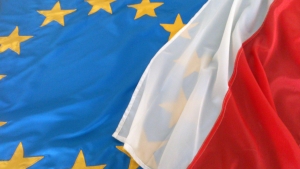26.06.2015
su15271cp – 0.2.1/0.3.2/5.3
Situation of European Patent Office (EPO)
JUNE 2015
Governments, politicians, representatives of Europe’s industry, NGOs and other interested critical observers, all should be concerned about the situation at the European Patent Office.
The officials of the EPO are entrusted with carrying out the European patent granting process, which includes taking responsibility for an independent review of European patent applications and for the application of law in this area of intellectual property.
However, governance over the current EPO procedure lacks fundamental checks and balances, there is no democratic control, and the staff themselves have in many cases no effective access to an independent, impartial judicial review when contesting a decision.
Yet checks and balances with access to a fair trial are fundamental components of the rule of law enjoyed in the democracies of our founding States, since they belong to their “community of values”. But apparently these are not applied in the EPO, which is fast becoming an island of lawlessness in the very heart of Europe.
For EPO staff, this governance problem is compounded by the now notoriously authoritarian administration style of the President of the EPO, Benoit Battistelli, such that the problem is now acute. Under his regime, the EPO has become a police state operating with impunity. Opposition is not tolerated and any staff perceived as being “obstructive” are removed by way of disciplinary procedures, penalties or other means, sometimes of dubious legality. Staff – in particular Union officials – are investigated and interrogated, in some cases by an external security agency, without any personal safeguards.
The events described in this document illustrate the dramatic downward trend in social dialog over the last four years. This drift, which is now increasingly visible to the public, finds its roots in an EPO management style characterized by its authoritarian leadership. The working climate is toxic for both individual staff in the EPO and for the broader functioning of this European institution as a whole. Functional immunity granted to the EPO has been conceived as blanket immunity, thereby exposing staff to the unlawful exertion of internal influence.
Not only the Administrative Council of the EPO, but also the European authorities and the public at large, all should beware the undesirable consequences when such abusive powers are left to operate effectively with total impunity.
UPDATED PRESS COVERAGE AND LETTERS FROM SUEPO
CAN BE FOUND HERE:
http://www.suepo.org/public/news
1
The EPO as a battlefield?1
1. Reforms
The European Patent Convention is now over 40 years old. The EPO is set up according to principles of the international civil service, many of which date back to the early 20th century. As early as 2007, the Administrative Council mandated a succession of EPO Presidents to develop and then introduce a number of reforms. The need for reform is understandable; it should strive to maintain the organisation’s compatibility with the needs and values of the public it professes to serve. However until now, most of the reforms have concerned human resources management and changing working conditions. None have addressed the issues of transparent governance with management accountability.
The working conditions laid down in the Service Regulations are not published; once the Administrative Council adopts new working conditions, they are implemented without any possibility for an independent instance or for the public to verify their compatibility with fundamental rights or with the generally accepted principles of law. A combination of claimed total immunity and, at the behest of the President, the abolition of external audit has led to this grave situation. Far from being of simply academic concern, the issue of control over governance and enforcement of fundamental rights is a very concrete issue. Although EPO staff members are civil servants, they do not enjoy the same “safety net” as
their counterparts in national administrations. In the event of termination of contract, EPO staff have no claim to support from a national health insurance, nor will they receive any unemployment benefits. In addition, their pension rights are not always secured.
2. Democratic deficit
All citizens of any democratic country retain, at least indirectly through their elected representatives, a certain degree of influence over the rules and legislation that will apply to them. They can always take part through internal procedures of political parties in the elaboration of proposals, they can participate in public debates, and ultimately they can vote legislators out of office at the next election. This is not the case in the EPO. Binding rules are enacted by the Administrative Council (which consists of non-elected civil servants from member states) on the recommendations of the President of the EPO. Lack of meaningful consultation or collaboration means staff has virtually no say and judicial control is limited.
Many of the changes introduced are perceived as being nonsensical, disruptive and later deemed inconsistent with subsequent changes. This has caused widespread discontent.
3. Repression of dissent: An uncontrolled police state
Even though the outcome was often less than satisfactory, the EPO management must be given credit for trying, at least between 2007 and 2010, to allay the concerns of staff by engaging in meaningful dialogue with elected staff representatives, including the staff union. All this has changed dramatically under the current President. Instead of engaging in dialogue, he has chosen the path of systematically repressing the slightest expression of dissent and/or opposition.
To silence any dissenting voice, the President has unilaterally introduced a raft of reforms including: changing the rules for challenging decisions; introducing new “investigation
____________________
1 IPKat provides an interesting overview of the events at the EPO since 1 January 2015.
2
guidelines“; introducing new strike rules; banning SUEPO from EPO premises; applying disciplinary measures to Staff Representatives; banning Staff Representatives from sending emails to more than 50 Staff members; investigating Staff representatives using the Investigating Unit who use sometimes dubious methods and external2 contractors.
Both the international press and the internet are replete with negative reports concerning the management style of Benoît Battistelli. These include:
- Censorship over deteriorating working conditions;
- Disciplinary measures and threats against those individuals who raise the issue of four suicides in 3 years. Threats of reprisals against those who intend to join a peaceful demonstration duly authorized by the city authorities;
- Suspension of and disciplinary measures against two Staff Committee nominees in the Appeal Committee, allegedly for daring to resist management manipulation;
- Suspension of a “patent judge”, a Board of Appeal member, by the EPO President under the guise of a “house ban”, which has now endured for more than 6 months)3;
- Installation of secret spying equipment (including key-loggers) on computers in the semi-public areas of the EPO: such computers were made available to members of the Administrative Council (during AC meetings) and visiting patent attorneys while prosecuting patents for their clients;
- Approval – albeit retroactively4 – of such spying by the Data Protection Officer;
- While ostensibly trying to repair its image by endeavouring to re-open dialogue with the Unions5, the Administration has concurrently launched investigations against the majority (if not all) of the Staff representatives and Union Officials. Many of these investigations have been sub-contracted to an external company, Control Risks, who have a somewhat
controversial reputation. Their techniques involve interrogation without any safeguards, all this at the initiative of the investigation unit, itself under the direct authority of the President of the Office.
4. No effective access to justice
Staff is particularly aggrieved because it has no reasonable way to seek relief through judicial review:
- The internal dispute resolution process (the Internal Appeals Committee) and the subsequent external instance (the Administrative Tribunal of the International Labour Organisation) are reserved for individual grievances that can be instigated once the alleged
____________________
2 A comprehensive list can be found in the following SUEPO publication.
3 This action has generated enormous disquiet, not only among bloggers, attorneys and EPO union officials, but also within the Enlarged Board of Appeal. The Administrative Council endorsed this decision in its December session. Up to date (June 2015), disciplinary proceedings are on-going and the BoA member is still suspended until a further decision, probably the next AC session.
4 It has become apparent from a document (archive) available on internet (FOSS Patents) that the covert surveillance of publicly accessible computers in the Munich ISAR building by the Investigation Unit has been signed by the Data Protection Officer of the European Patent Office. A blogger, Florian Mueller, comments as follows: “There is now
conclusive evidence that the EPO has violated basic human rights not only of its staff but even of unsuspecting visitors of one of the EPO’s Munich facilities. [...] [T]he request that the “data protection officer” (who is more than 25 years late to serve as a Stasi official) authorized merely refers to freedom-of-speech issues: “a sustained campaign of defamatory and insulting communications against [the EPO's Jack Warner] Vice President Zejlko Topic, other senior managers of the Office and possibly Administrative Council Delegates, in the form of normal post and electronic mail.” In the mean time, neither the EPO nor the AC representatives have commented upon these events, let alone taken steps to suspend the investigations. See References [6]-[11] below.
5 In an attempt to limit the damage in the public eye, and to counter the criticism within the Administrative Council, the Chair of the Council Jesper Kongstad and the President of the EPO Benoit Battistelli called for “a renewed social dialogue”: They “consider in particular that the formal recognition of the trade unions within the EPO’s legal framework could create the conditions to re-launch the process and to overcome some longstanding issues5.” This led the way to “trilateral meetings” with representatives of the unions, of the Administrative Council and the President. However, it has become quite clear that any “recognition” has to remain toothless.
3
- damage has occurred. Only in very exceptionally circumstances can a general decision, such as a decision modifying working conditions, be challenged perhaps collectively before it has been implemented.
- An appeal against dismissal or other disciplinary action can only be sought in front of the “Administrative Tribunal of the International Labour Organisation” (ILOAT) in Geneva, who cannot grant injunctive relief. The situation can only be corrected once the damage has occurred: such relief may take many years. This and the lack of any emergency procedure,
makes EPO staff particularly vulnerable to succumbing to the threats inherent in the present management style.
- The staff union has no access to either the Internal Appeals Committee or to the ATILO. As a corporate body established under national law, the Union may have access to the domestic courts of the host countries, but the EPO shields itself behind its functional immunity from any and all jurisdiction and execution.
- Even when staff members have access to the statutory dispute resolution process, it takes on average 3-5 years for a grievance to be assessed by the Internal Appeals Committee. If the grievance then proceeds to the ATILO, the claimant can count on a minimum of another 3-4 years before the grievance is heard. All in all, with the current increasing backlog in the
Internal Appeals Committee and at the ATILO, it is expected that grievances lodged after 2011 will not be adjudicated before at least a decade.
- Staff repeatedly complain that the Appeals Committee is both highly dysfunctional and lacking in impartiality. Things were so bad that in October 2014, the Central Staff Committee refused to appoint representatives to the Appeals Committee until these issues were resolved. Instead of addressing them, the President simply ordered his appointees to proceed without staff representatives6.
- On behalf of the AC, the Board of Auditors of the European Patent Organisation reviewed the Internal Appeals procedure in June 2015 (CA/20/15). They have confirmed that the President does not follow recommendations of his own Appeals Committee insofar as he (almost) systematically rules against staff. The ILO-AT itself judged that it “is ill equipped to act as a trial court” (J.3291). For SUEPO, there can be no social peace without unrestricted access to impartial justice.
- Moreover, if one takes the figures provided by the auditors for 2013 – 20 Nov 2014 in A/20/15 and compares them to the figures provided by the President in his social report (CA/55/15), one realizes that between 20 Nov. and 23 Dec. 2014, the Committee apparently managed to produce over 150 opinions in a single month! One could be tempted to conclude that when the clash exploded and the Appeals Committee was directed to continue its work without staff representatives, the remainder of the Committee either accelerated to an incredible speed or found a short-cut to the procedures: in a couple of sessions and within a few days, it took care and to provide opinions on the equivalent of the past year’s “production”.
5. Conflict
The management style that currently prevails in the EPO may well be both detrimental to its proper functioning and undermine the EPO’s reputation on the international stage. This has generated a considerable number of articles in the mainstream press or well-respected blogs on intellectual property. Questions have even been raised in several European parliaments. Despite this unrest, the organization fails to adhere to European values.
To try and ease the situation, the staff representation has repeatedly proposed to Mr. Battistelli to use an external mediator; this suggestion has always been rejected. The Union has proposed a
____________________
6 Staff Committee views can be found here [1].
4
framework agreement to regulate relations between itself and management; the proposal has also been ignored. Recently, the German court in Munich also suggested mediation as a means to
facilitate resolution of a dispute with the union; Mr Battistelli flatly rejected the Court’s recommendation.
Eventually, the Union has had to bring the matter before a national court where they claimed that the EPO was infringing SUEPO’s right to operate and to engage in collective bargaining. The Dutch Court of Appeal, in its February judgment, ruled in favour of SUEPO vs EPO. To quote from an article in the Nederlands Juristenblad, a Dutch legal magazine:
“The Court of Appeal in The Hague has created an international precedent in the case against EPO by rejecting the immunity of an international organisation in a collective labour law case, and also awarding the claims on their merits, based on the fact that the organisation in question violated fundamental human rights. This decision is important because it further institutionalises the accountability of international organisations. Unfortunately the Netherlands also showed itself at its most narrow-minded: the Minister instructed the bailiff to not enforce the judgement because the organisation enjoys immunity from enforcement under international law. This instruction not only erodes the separation of powers stipulated by the Constitution, it isn’t an obligation under international law either: as is the case for immunity from jurisdiction, immunity from enforcement can only be granted if the organisation adequately protects fundamental rights.”
In the meantime, the Dutch government has now apparently joined the EPO in an attempt to overturn the judgment in the next instance (“cassation”)7.
6. An unhealthy concentration of Power.
Like many international organisations, the EPO and its (high) officials enjoy a degree of immunity that borders on impunity. There are virtually no checks and balances left to counter any abuse. Of perhaps greatest concern is the lack of checks and balances in respect of the highest “judicial instance” of the EPO, the Board of Appeals. Even the Enlarged Board of Appeal of the EPO took up this issue in early 2014 through a remarkable decision >[16].
President Battistelli has engaged in a series of reforms for the Boards of Appeal8:
- Perceived independence: a new proposal (CA/16/15) states its goals as “to increase the organisational and managerial autonomy of the BOA, the perception of their independence (enshrined in Article 23 EPC) and also their efficiency, in order to respect the principle of effective legal protection within the legal framework of the current EPC”.
In a position paper, the association of the members of the BoA (AMBA) criticised the proposal: in their opinion, it “mixes up the roles of a supervisory committee and a council of the judiciary without being either” and without solving “the problems noted in R 19/12”. Furthermore, “making re-appointment dependent on performance appraisals, including quality aspects, [goes] against the security of tenure.“ uncertainty of permanent status“ which in turn is not “helpful in recruiting experienced external candidates”. Finally, the proposed “move to Berlin would have serious consequences on manpower”.
- New career proposal: AMBA and the Presidium of the BoA equally criticised the new proposal for implementing a new career system noting that it “takes no account of the special situation of the boards of appeal, and even removes existing derogations”.
____________________
7 See references [3]-[5] below.
8 See references [12]-[15].
5
These proposals are under discussion and are receiving great public attention. AMBA concludes that these proposals are “in contrast to a clear separation of powers which is a basic principle in all European countries and which is of utmost importance for the acceptance of the European patent system.”
7. The interest of the European public
There is a serious problem of governance in the EPO. The opacity of its decision-making processes and the lack of accountability, which the EPO justifies on the basis of “its immunity”, is anachronistic in both Europe and in the 21st century: we live in a time where states require from their institutions (and from each other) both financial transparency and accountability. While the EPO may still be “competitive” as an employer in terms of remuneration benefits, its internal human resources policies, in particular with regards to interpersonal relationships, are both antiquated and brutal.
Generally speaking, European society should not tolerate that some of its citizens are deprived of their fundamental rights simply because they are employed by an intergovernmental organisation, or because they are well paid. This is surely particularly pertinent when the EPO member states are, in their overwhelming majority, also member states of the European Union. Yet this is exactly what now happens at the EPO.
The Administrative Council of the EPO, and thereby vicariously the member states, are being at best complacent, at worst grossly negligent of their responsibilities. The Council largely gives the President carte blanche, without asking what the consequences might be or considering how he could use his powers. Structurally, the President of the EPO acts as accuser, investigator, judge and final arbiter on all matters; there is no separation of power guaranteeing a healthy system of checks and balances for his actions. The nearly absolute power the current President enjoys and the manner in which he uses it continues to be a source of particular concern and dismay. Staff and their unions consider the limitations on the freedom of expression and freedom of association (embodied in the strike regulations) without effective access to justice as breaches of their fundamental rights as Europeans.
Furthermore, beyond the fact that European citizens are deprived of the fundamental rights, this working environment is highly toxic for both the individual staff in the EPO and for the normal functioning of this European institution as a whole. An authoritarian leadership without effective judicial protection makes individual staff members particularly vulnerable to suffering under the present management style: not only does their health suffer, but their capacity as officials entrusted with the European patent granting process is impaired. Under these conditions, how can one expect EPO agents to fulfil their responsibilities and undertake an independent review of European patent applications and apply the law dictated by the EPC? If the EPO is tasked with granting patent rights to inventors and European industry, how credible are those rights if delivered by an institution that is ostensibly unable to comply with the rule of law in its own internal affairs?
Functional immunity granted to the EPO has been conceived by management as blanket immunity, thereby exposing staff to the use of abusive powers with total impunity.
It is high time that the competent authorities take a keener interest in what is happening at the EPO and insist that the house be put in order. This should be done by introducing proper policies through consultation and negotiation, not through repression and intimidation.
6
REFERENCES
[1] “EPO Justice: Analysis of Board of Auditors Review (CA/20/15)” , by the Central Staff Committee, 02.06.2105
https://www.suepo.org/rights/public/archive/sc15220cp.pdf
“Report – EPO Internal Justice System”, SUEPO, 18.12.2013
http://www.suepo.org/public/su13201cp.pdf
“Trias Politica” – Beyond the problems, the way out: “Feuille de Route” for Social Democracy“, by SUEPO, 18.12.2013
http://www.suepo.org/public/su13202cp.pdf
[2] “SOCIAL CONFLICT AT THE EUROPEAN PATENT OFFICE”, by SUEPO, 27.11.2014
http://www.suepo.org/public/su14294cp.pdf
[3] Judgment of the Dutch Court of Appeal in SUEPO v EPO
The judgment of the Dutch Court of Appeal is available in English, French and German.
http://www.suepo.org/archive/su15088cpe.pdf
Süddeutsche Zeitung, “Recht haben und recht bekommen”, 27.02.2015
http://www.suepo.org/public/ex15092cp.pdf (with translations)
Nederlands Juristenblad, “Fundamentele arbeidsrechten en immuniteit”, 08.05.2015
http://www.suepo.org/public/ex15222cp.pdf (with translations)
[4] Communiqué 69 from the President of the EPO (Annex)
http://ipkitten.blogspot.de/2015/02/the-epo-privileged-and-immune-says_24.html
[5] Notification from the Dutch Government (Annex)
http://www.suepo.org/public/su15090cp.pdf
[6] “The so-called data protection officer of the EPO signed off on keylogging, hidden
cameras”, FOSS Patents, 14.06.2015
http://www.fosspatents.com/2015/06/the-so-called-data-protection-officer.html
“Forderung nach externem Datenschützer”, Süddeutsche Zeitung, 10.06.2015
http://www.suepo.org/public/ex15250cp.pdf (with translations)
[7] “Wie bei der FIFA oder in China – Europäisches Patentamt: Beschäftigte bespitzelt”, Münchner Merkur, 12.06.2015
http://www.suepo.org/public/ex15244cp.pdf
[8] “MPs call for tough action on rogue investigators”, 06.06.2012
http://www.parliament.uk/business/committees/committees-a-z/commons-select/home-affairs-committee/news/120706-pi-rpt-published/
“The Dark Side of Power: German Corporate Spying Scandal Widens”, Spiegel Online,
“Attack on Customer Data: Lufthansa Admits Spying on Journalist”, Spiegel Online
“Watching the detectives”, The Guardian
“From guard dogs and fences to business intelligence”, Financial Times
7
[9] “Sturm im Glashaus”, Süddeutsche Zeitung, 31.05.2015
http://www.suepo.org/public/ex15214cp.pdf (with translations)
“Krisenfachleute spähen im Europäischen Patentamt”, FAZ, 02.06.2015
http://www.suepo.org/public/ex15219cp.pdf (with translations)
[10] “Un si bon office”, Le Monde, 06.04.2015
http://www.suepo.org/public/ex15152cp.pdf
[11] Demonstration in front of the British consulate in Munich planned for the 25.02.15 and
cancelled on 23.03.2015. What does EPO staff want?
http://www.suepo.org/public/su14286cp.pdf
“Präsident droht protestwilligen Mitarbeitern”, Münchner Merkur, 25.02.2015
http://www.suepo.org/public/ex15070cp.pdf
[12] Letter of Sir Robin Jacob addressed to Mr Jesper Kongstad, Chairman of the AC of the EPO.
http://ipkitten.blogspot.de/2015/01/judicial-independence-europes-ip-judges.html
[13] Communiqué on decisions taken by the Administrative Council at its 142nd meeting concerning the suspension of the member of the Board of Appeal, 12.12.2014
http://www.epo.org/about-us/organisation/communiques.html#a10
For all matter concerning the Board of Appeals please refer to the Association of the
Board Members:
http://www.amba-epo.org/
[14] The further public condemnations:
Letter from Dr. Tilman Müller-Stoy at Bardehele PagenBerg to the German representative of the AC, 08.12.2014
http://ipkitten.blogspot.de/2014/12/the-chorus-swells-another-entreaty-to.html
http://www.fosspatents.com/2014/12/top-notch-patent-litigator-sees.html
Letter from the Enlarged Board of Appeal to the representatives of the AC, 08.12.2014
http://ipkitten.blogspot.de/2014/12/breaking-news-enlarged-board-appeals.html
Letter from two external members of the Enlarged Board of Appeal to the representatives of the AC;
http://ipkitten.blogspot.co.uk/2014/12/leading-european-ip-judges-join-chorus.html
Six further external members of the Enlarged Board agree, 11.12.2014
http://ipkitten.blogspot.co.uk/2014/12/six-more-judges-criticise-battistellis.html
[15] Letter from the EP Lawyers Association to the AC representatives, 29.12.2014
[16] Concerns from Law Associations about the new BoA Career proposal (CA/16/15)
8
In the framework of the user consultation, the following raised concerns about the
proposal in CA/16/15:
Letter from Council of Bars and Law Societies of Europe (CCBE), 15.05.2015
http://www.ccbe.eu/fileadmin/user_upload/NTCdocument/1__Letter_independen1_1432041035.pdf
Letter from EPLAW, 04.06.2015
http://www.eplawpatentblog.com/2015/June/20150604 Letter to Mr. Battistelli.pdf
[17] Decision R 19/12:
The Enlarged Board decides that the Vice President of DG3 is to be recused from a petition for review case on suspicion of partiality because of his continuing connection with the EPO management.
https://register.epo.org/application?documentId=EV0ZJBW50569684&number=EP99947419&lng=en&npl=false
Further Press reports
[18] “Streit beim Europäischen Patentamt”, Süddeutsche Zeitung, 11.03.2014
http://www.suepo.org/public/Streit_eskaliert_de_en_nl.pdf (with translations)
[19] “Umstritten und Souverän”, Die Zeit, Ausgabe Nr.13 20.03.2014
http://www.zeit.de/2014/13/benoit-battistelli-epa-europaeisches-patentamt
[20] Brief vom französischen Abgeordneten Philip Cordery an die französischen Minister Arnaud Montebourg und Fleur Pellerin.
http://www.suepo.org/public/CorderyLetterFr-En-De.pdf (with translations)
[21] Offener Brief vom französischen Abgeordneten Pierre-Yves Le Borgn‘
http://www.pyleborgn.eu/2014/04/interrogations-sur-la-gouvernance-de-loffice-europeen-des-brevets/
[22] “Eine kleine Minderheit schürt Ängste”, Süddeutsche Zeitung 26.03.2014
http://www.suepo.org/public/su14078cp.pdf
[23] “Ärger im Europäischen Patentamt – Aufstand gegen den Sonnenkönig”, Berliner Zeitung vom 30.03.2014
http://www.berliner-zeitung.de/wirtschaft/aerger-im-europaeischen-patentamt-aufstand-gegen-den-sonnenkoenig,10808230,26698776.html
[24] “A l’Office européen des brevets, ambiance délétère et président contesté”, AFP & Libération.fr, 30.03.2014
http://www.liberation.fr/economie/2014/03/30/a-l-office-europeen-des-brevets-ambiance-deletere-et-president-conteste_991434
9
If “Mister President” and “Sun King” (his common nickname), also known as Benoît Battistelli, ends up announcing his resignation (hopefully forced, albeit silently) some time soon, it won’t surprise us. He won’t allow himself to publicly accept defeat (get fired), he has already threatened to resign (fall on his sword under great pressure with suicidal tendencies), much to the expectation of Wouter Pors, an IP practitioner widely known around Europe. It would also be somewhat poetic a justice given the number of suicides Battistelli et al. are claimed to have caused. █






















 Content is available under CC-BY-SA
Content is available under CC-BY-SA